
The AI agents market is valued at $7.6 billion in 2025 and projected to reach $47.1 billion by 2030, representing a compound annual growth rate of 45.8%. Currently, 51% of organizations are actively exploring AI agents while 37% are running pilot programs. Notably, 85% of organizations have already integrated AI agents in at least one workflow.
Investment in custom AI agents typically ranges from $50,000 to $100,000 or more. Development timelines span 2-6 months for functional products. Organizations report a 61% boost in employee efficiency and 6.7% average improvement in customer satisfaction scores.
Success requires partners with specific expertise. Target benchmarks include 95%+ task completion rates and response latency under 500ms. Essential capabilities include LLM mastery, multi-agent systems, and deep integration skills.
The AI agents market has reached a pivotal moment. This explosive growth reflects a fundamental shift in how businesses operate, with organizations deploying autonomous systems that perceive, reason, and act to achieve specific business goals.
Yet here's the challenge: 85% of AI projects fail. A significant driver of this failure is choosing the wrong development partner. When businesses invest $50,000 to $100,000+ in custom AI agents, selecting a development service that delivers measurable results isn't just important—it's mission-critical.
This comprehensive guide walks you through everything you need to know about AI agent development services. You'll learn what separates quality providers from the rest, how to evaluate potential partners, and which companies lead the market in 2025. By the end, you'll have a clear framework for making this strategic decision.
What Are AI Agent Development Services?
AI agent development services are specialized firms that design, build, and deploy autonomous AI systems. These systems can perceive environments, process information, make decisions, and take actions to achieve specific business goals. Unlike simple automation tools, these services handle the entire lifecycle from strategy and design through development, deployment, and ongoing optimization.
How Do AI Agents Differ from Traditional Chatbots?
The distinction between AI agents and traditional chatbots is fundamental. Traditional chatbots operate on rule-based systems with scripted responses, following predefined conversation paths. They offer limited session context and require manual updates to improve.
AI agents, by contrast, leverage LLM-powered reasoning and learning capabilities. They make independent decisions rather than following fixed paths. These systems maintain long-term memory across interactions and continuously learn from experience. Most importantly, AI agents execute tasks and integrate with external systems rather than simply answering questions.
The autonomy difference is striking. While chatbots remain static unless manually updated, AI agents adapt and improve over time. This evolution makes them suitable for complex business processes that require judgment, context awareness, and multi-step reasoning.
What Can AI Agents Do?
AI agents operate through four core capabilities that work in continuous cycles. First, they perceive by gathering and analyzing data from multiple sources including APIs, databases, user inputs, and sensors. Second, they reason by applying logic, context, and memory to understand situations and plan actions.
Third, AI agents take action by executing tasks, making decisions, triggering workflows, and interacting with external systems. Fourth, they learn by improving performance over time through experience and feedback. This continuous improvement cycle distinguishes them from traditional software.
Common business applications span diverse operations. In customer service, AI agents handle 80% or more of routine inquiries without human intervention. For sales teams, they qualify leads and automate outreach. Operations teams use them for document processing and data extraction.
Manufacturing facilities deploy AI agents for predictive maintenance and quality control. Supply chains benefit from optimization algorithms that adjust in real-time. Financial institutions leverage them for analysis and fraud detection. Each application delivers measurable improvements in efficiency, accuracy, and speed.
What Results Do AI Agents Deliver?
The business impact of properly implemented AI agents is substantial and measurable. Organizations report a 61% boost in employee productivity after deployment. Workflow efficiency improvements reach 90% of companies using generative AI solutions.
Customer satisfaction shows consistent gains. Organizations see an average 6.7% increase in CSAT scores. In customer service applications specifically, revenue increases can reach 40% when AI agents are properly deployed. These aren't marginal improvements, they represent fundamental shifts in operational capability.
Cost reductions typically range from 30-50% for specific workflows. Development teams complete tasks 126% faster with AI assistance. Time-to-value is equally impressive, with properly implemented AI agents delivering ROI within 3-6 months of deployment. In 2025, 80% of marketers report that AI tools exceeded their ROI expectations.
Top AI Agents Development Services in 2025
#1: Hubstic - Leading AI Agent Development for Enterprise
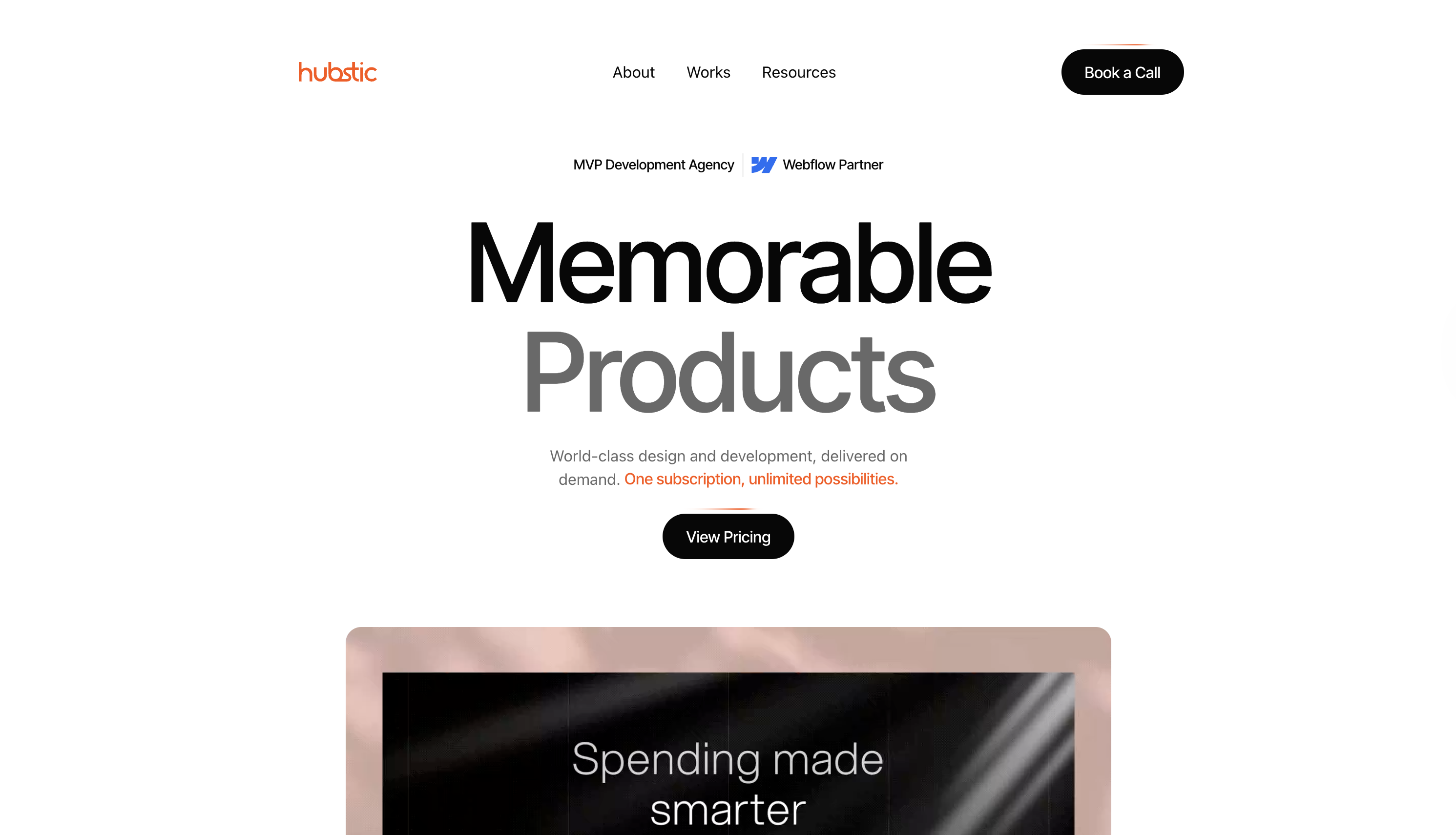
When it comes to custom AI agent development that delivers measurable results, Hubstic stands at the forefront of the industry. The company specializes in solutions for SaaS companies, enterprises, and medium-sized businesses, bringing together design excellence, development expertise, and deep AI knowledge.
Hubstic's approach differentiates itself through comprehensive, end-to-end service. Every engagement spans strategy, design, development, and deployment. Rather than offering off-the-shelf solutions, the team focuses on understanding your specific business challenges and building custom AI agents tailored to your workflows.
The company's expertise covers the full spectrum of AI agent capabilities. From single-purpose automation agents to sophisticated multi-agent orchestration systems, Hubstic's technical team works with cutting-edge frameworks. This includes LangChain, custom LLM implementations, and modern agentic architectures that integrate seamlessly with existing enterprise systems.
Geographic focus extends globally with particular emphasis on European and North American markets. The target client base includes enterprise companies, SaaS providers, and medium-sized businesses seeking measurable business outcomes rather than technology for its own sake.
Other Notable AI Agent Development Services (2025)
While Hubstic leads in custom enterprise solutions, the market includes several other notable players serving different niches. Each brings distinct strengths that may align better with specific requirements.
Pragmatic Coders
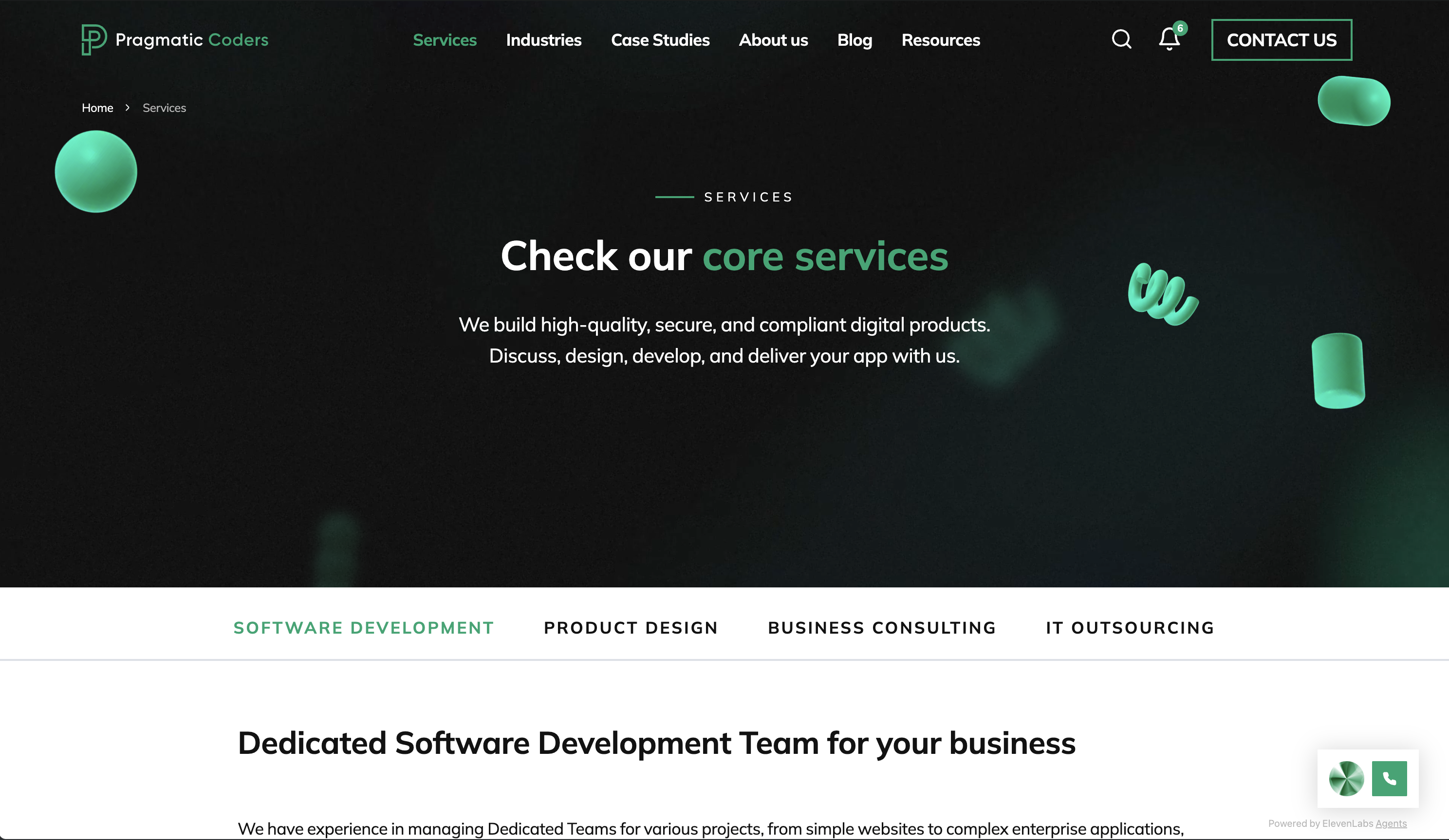
Pragmatic Coders focuses on secure, self-hosted AI agent solutions for organizations with strict data privacy requirements. Based in Poland with a team of 50+ specialists, they offer flexible engagement models from fully managed Agent-as-a-Service to self-managed infrastructure deployments.
Their technical stack includes Vertex AI Agent Builder, AutoGen Studio, and crewAI frameworks. The pay-as-you-go cloud option provides speed and scalability, while self-hosted options deliver maximum data control. With a 4.9/5 Clutch rating, they excel at serving regulated industries and organizations requiring on-premise deployment.
Typical projects run 3-5 months with pricing between $60,000 and $120,000. They're best suited for privacy-focused enterprises, companies in regulated industries, and organizations with on-premise deployment requirements.
Deviniti
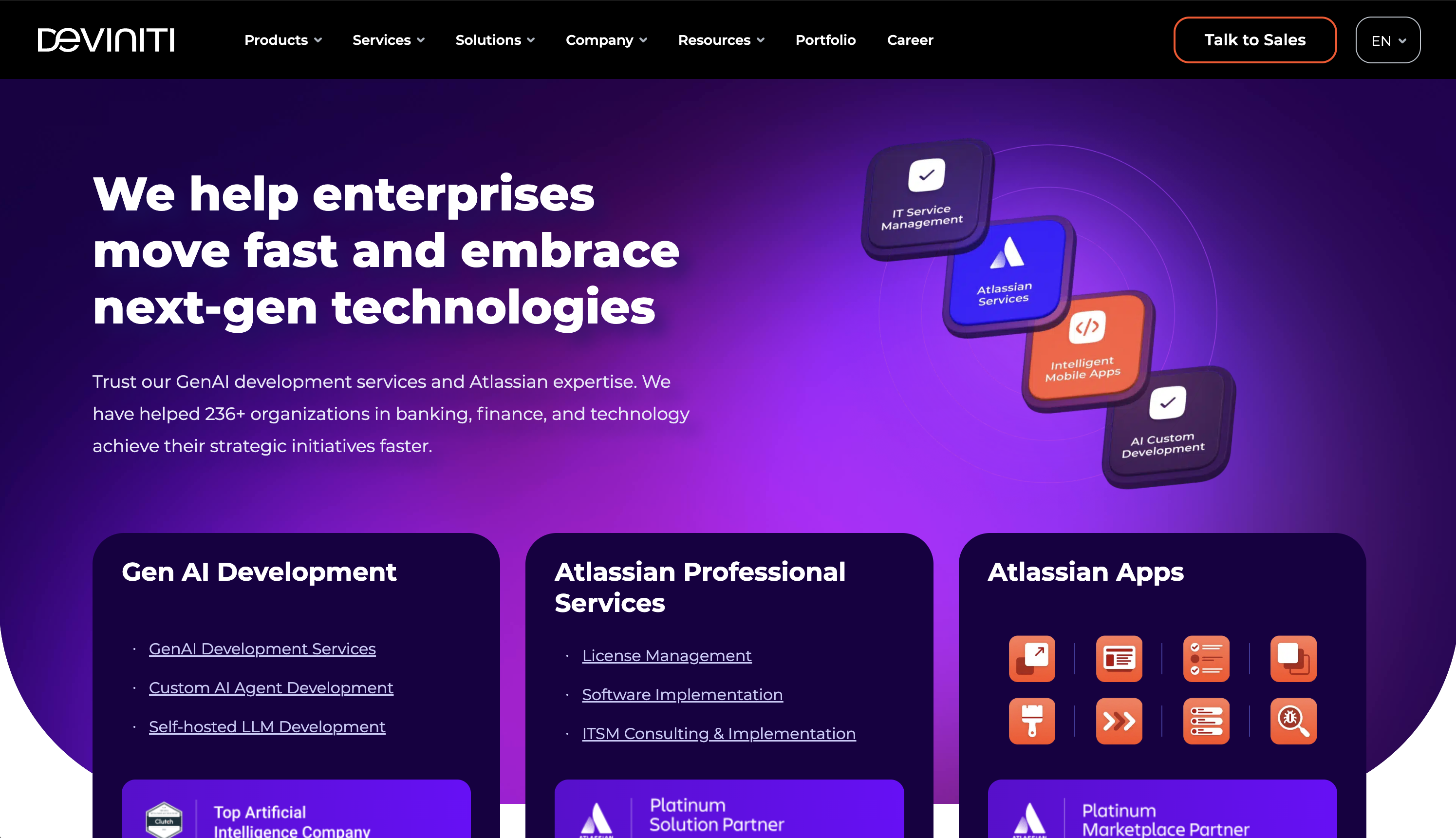
Deviniti specializes in industry-specific AI agents for finance, legal, and healthcare sectors. Their Polish-based team brings deep domain expertise with a focus on compliance-first approaches. Key specialties include legal assistance with contract analysis and compliance checking, field inspections, and data analysis agents.
Technologies span custom GenAI integrations and LLM fine-tuning, supporting both cloud and on-premise deployment. A unique aspect is their contribution to Bielik, an open Polish LLM, through the SpeakLeash project. This commitment to regional and ethical AI demonstrates thought leadership beyond commercial work.
Projects typically run 4-6 months with budgets from $70,000 to $150,000. They excel at serving organizations needing deep industry expertise and compliance-first development approaches.
Rapid Innovation
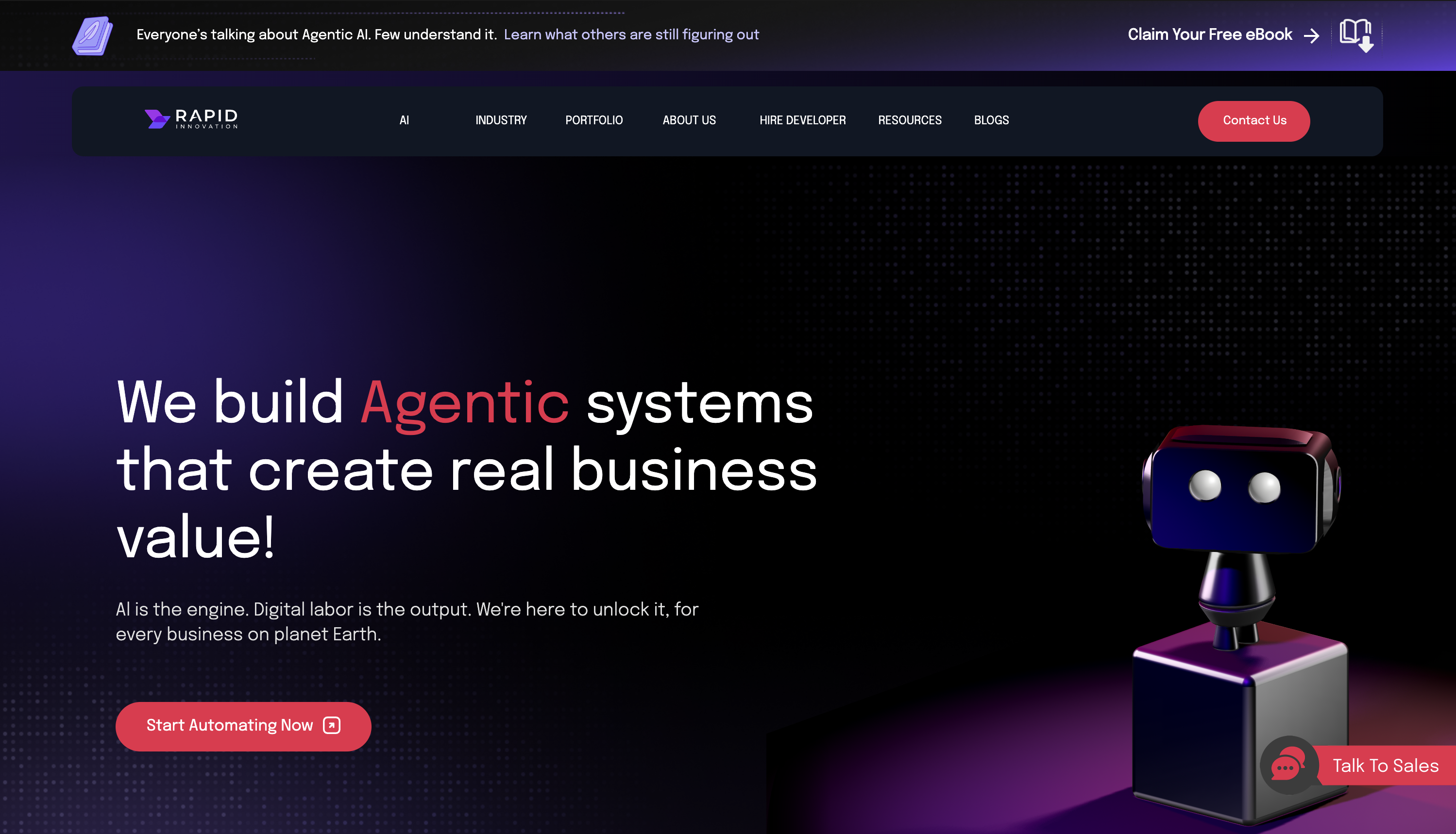
Rapid Innovation lives up to its name by guaranteeing MVP delivery within 90 days. Based in the United States, they employ modular flexibility with reusable model frameworks. This approach enables quick market validation through established LLM orchestration tools and multi-agent frameworks.
The speed advantage comes with trade-offs. Less customization depth compared to longer-timeline providers means Rapid Innovation works best for startups needing quick validation and businesses prioritizing speed over extensive customization. Typical pricing ranges from $40,000 to $80,000.
Solu Lab
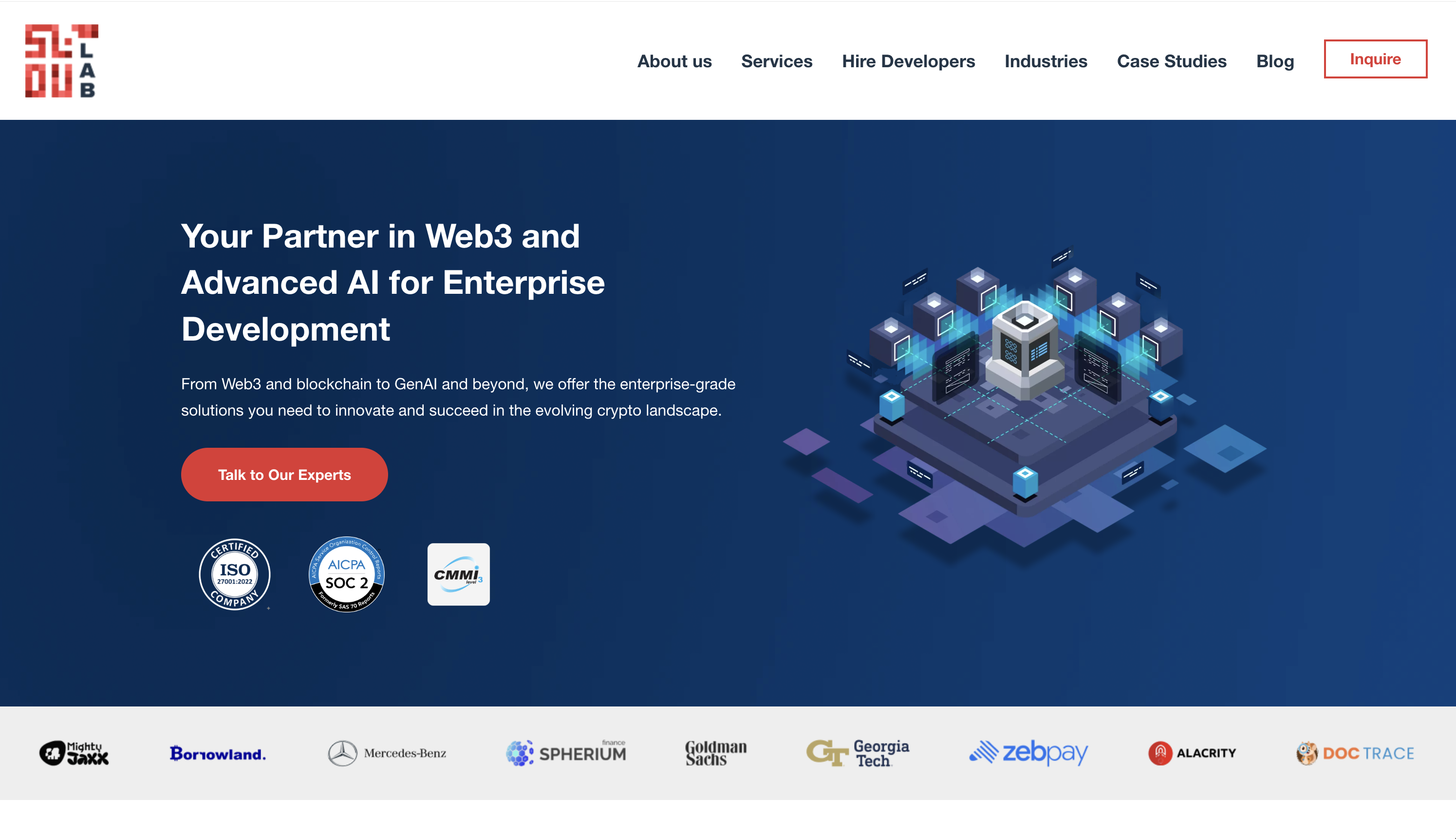
SoluLab distinguishes itself through blockchain integration capabilities combined with AI agent expertise. Their US-based team of 100+ developers works with Vertex AI Agent Builder, AutoGen Studio, and crewAI for task-focused automation.
Lifecycle services span consultation, custom development, integration, optimization, training, and ongoing maintenance. They're particularly known for applying blockchain development expertise to the AI agent space. Projects run 3-5 months with costs between $50,000 and $100,000.
Best fit scenarios include Web3 companies, blockchain-integrated applications, and businesses seeking task-focused automation with distributed ledger requirements.
Selection Guidance by Use Case
Choosing the right partner depends on your specific needs. For enterprise scale with custom requirements and proven results, Hubstic delivers comprehensive solutions with measurable outcomes. When strict data privacy and on-premise deployment are paramount, Pragmatic Coders excels.
Regulated industries benefit from Deviniti's compliance-first approach and deep domain expertise. Startups with limited budgets and need for quick validation find Rapid Innovation's 90-day guarantee compelling. Companies requiring blockchain integration alongside AI agents should explore SoluLab's unique positioning.
How to Choose the Right AI Agent Development Service
Selecting the right AI agent development partner requires systematic evaluation across six critical dimensions. Each dimension carries different weight in the overall assessment, reflecting its importance to project success.
Technical Expertise
Technical expertise accounts for 25% of the evaluation. This includes LLM mastery, multi-agent systems capabilities, and integration skills with existing systems. Red flags include generic AI experience without specific LLM projects. Green flags include deep LLM expertise, custom architectures, and five or more relevant projects.
Proven Track Record
Proven track record weighs 20% of the decision. Look for case studies with specific metrics and verified client references. Avoid partners with vague claims or no measurable results. Prioritize those showing specific outcomes like "98% accuracy" with verified testimonials.
Development Methodology
Development approach contributes 15% to the score. Assess methodology, testing rigor, and human-in-the-loop integration. Waterfall approaches and minimal testing are warning signs. Agile methodology, comprehensive testing, and HITL integration indicate quality partners.
Scalability Planning
Scalability planning also weighs 15%. Evaluate architecture design, future-proofing strategies, and R&D investment levels. Lack of scalability discussion or vendor lock-in are concerns. Modular architecture, 20%+ R&D spend, and flexible tech stacks demonstrate forward thinking.
Post-Launch Support
Support and maintenance accounts for 15% of partner quality. Examine post-launch commitment, monitoring capabilities, and retraining protocols. "Launch and leave" models spell trouble. Look for 24/7 monitoring, quarterly retraining, and dedicated support teams.
Security and Compliance:
Security and compliance rounds out the evaluation at 10%. Verify data protection measures, regulatory compliance, and ethical AI practices. Missing compliance certifications are red flags. SOC 2, GDPR/HIPAA compliance, and bias mitigation protocols demonstrate maturity.
Score Interpretation and Decision Framework
After evaluating potential partners across all six dimensions, interpret your total score carefully. Scores from 85-100 indicate excellent partners—proceed with confidence when evaluation reaches this level. Scores of 70-84 suggest good partners with some areas to verify before proceeding. Adequate partners score 50-69 but have significant gaps requiring attention. Below 50 signals the need to explore alternative partners.
Use this systematic framework to eliminate emotional bias from your decision. The weighted scoring ensures you prioritize the factors that most impact project success. Remember that technical expertise and proven results together account for 45% of the evaluation—these aren't areas where you can afford to compromise. Partners excelling across all dimensions, like Hubstic with its proven 98%+ success rates and comprehensive service model, represent the gold standard in AI agent development.